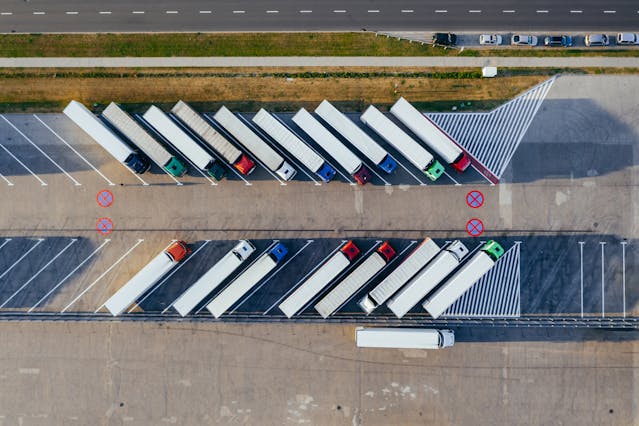In today’s fast-paced and ever-evolving business environment, logistics has become a critical component of the supply chain. The integration of advanced technologies has not only streamlined operations but also created new opportunities for efficiency and growth. Let’s delve into how technology is modernizing logistics and transforming the industry.
1. Digital Twins
Digital twin technology is one of the most transformative innovations in logistics. By creating a virtual replica of the physical supply chain, companies can simulate and analyze different scenarios to optimize performance. This real-time modeling helps in identifying bottlenecks, testing new strategies, and improving overall efficiency without disrupting actual operations.

2. Big Data and Analytics
The sheer volume of data generated in logistics is staggering. Big data analytics enables companies to harness this data to gain valuable insights. From predicting demand to optimizing routes and managing inventory, data-driven decision-making enhances precision and reduces costs. Advanced analytics tools also help in identifying trends and improving forecasting accuracy.
3. Cloud Computing
Cloud-based solutions offer unparalleled scalability and flexibility in logistics management. By migrating to the cloud, companies can access real-time data, collaborate seamlessly across different locations, and ensure data security. Cloud platforms support the integration of various logistics functions, from warehouse management systems (WMS) to transportation management systems (TMS), creating a cohesive and efficient operation.
4. Augmented Reality (AR)
Augmented Reality is making significant inroads into the logistics sector, particularly in warehousing and inventory management. AR applications, such as smart glasses, assist workers in locating items quickly, picking and packing orders accurately, and performing maintenance tasks. This technology not only enhances productivity but also reduces training time for new employees.
5. Blockchain for Supply Chain Transparency
Blockchain technology is revolutionizing supply chain transparency and security. By providing a decentralized and immutable ledger, blockchain ensures that every transaction is recorded and verified. This transparency helps in tracing the origin of products, combating counterfeiting, and building trust with customers. Additionally, blockchain simplifies documentation and reduces administrative burdens.
6. Artificial Intelligence in Customer Service
AI-powered chatbots and virtual assistants are transforming customer service in logistics. These tools can handle a large volume of inquiries, provide real-time updates on shipment status, and assist with booking and tracking orders. By automating routine tasks, AI frees up human agents to focus on more complex issues, enhancing customer satisfaction.
7. Green Logistics Solutions
Sustainability is a growing concern in the logistics industry. Companies are increasingly adopting green logistics solutions to minimize their environmental impact. This includes using electric and hybrid vehicles, optimizing delivery routes to reduce fuel consumption, and investing in energy-efficient warehouses. Green logistics not only benefits the environment but also enhances brand reputation and meets regulatory requirements.
The Path Forward
The logistics industry is at the forefront of technological innovation. By embracing these advanced technologies, companies can enhance operational efficiency, reduce costs, and meet the ever-increasing demands of customers. Staying ahead in this competitive landscape requires continuous investment in technology and a commitment to innovation.

Leave a reply